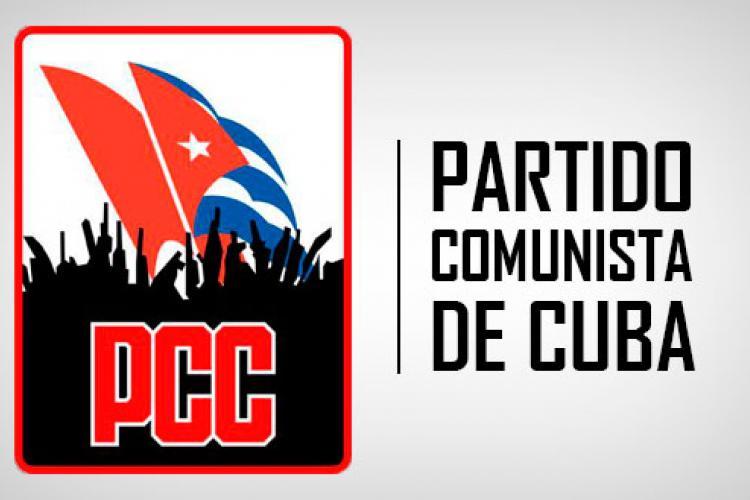
“There is no heroic chapter in the history of our homeland in recent years that is not represented there, there is no sacrifice, no combat, no feat, whether military or civilian, heroic or creative that is not represented, there is no revolutionary or social sector that is not represented. I am not talking about organizations. When I speak of sector I speak of workers, I speak of youth, I speak of farmers, I speak of our mass organizations”.
Nothing better than to evoke those words of Commander in Chief Fidel Castro during the proclamation ceremony of the Cuban Communist Party founded on October 3, 1965 in Havana, which was powerfully nurtured by members of the 26th of July Revolutionary Movement, as well as the Popular Socialist Party and the 13th of March Revolutionary Directorate, three revolutionary organizations involved in the national liberation campaign against dictator Fulgencio Batista.
These strands had already been coming together in some way in a difficult but enriching process, catalyzed by the emancipation struggles and the victorious power of the Rebel Army's advance culminating in the triumph of January 1959.
They had coincided in their general objectives, for the good of the Homeland and its children, the cause of the workers, farmers, students, youth, women, the humblest. There was not always agreement in the methods of combat, although from the beginning there was coordination, pacts, support for clandestine actions.
However, the unavoidable armed struggle of the insurrection initiated in the Sierra Maestra on December 2, 1956 was at first misunderstood by the Popular Socialist Party.
But the consolidation of the nascent Rebel Army in the scenes of bloody battles, forged by itself a greater rapprochement between the revolutionary movements, whose members joined the guerrilla struggle individually and finally created combat units in the center of the country.
Already in the mid 60's, the political will of the Chief of the Revolution had conceived the need to move to a higher stage of the organization, thinking not only in the urgencies that were being experienced but also in the scope of programs for the future, demanding a deep and true cohesion, not only tactical and strategic.
All this, according to him, to consolidate independence, justice and an important objective: the economic and social transformation of a nation, whose people needed to learn to create by themselves fundamental changes, including development projects.
There was an urgent need for the unification process of the most outstanding protagonists of events such as the last Liberation War that led to the victory of January 1959, in a peaceful country that had already had to defeat the mercenary aggression in Bay of Pigs in 1961, and was facing a war against bandits in the mountains in the center of the national territory.
It was also an urgency that demanded more ideological focus, which had to be approached like a mambi machete, with study and political culture in the broadest sense.
An important step was taken in 1961 when the three aforementioned movements merged into the Integrated Revolutionary Organizations (ORI), when the affinities and links were solid and certain pro-right elements had been decanted by their own weight.
With the deepening of the Cuban Revolution and its direction towards socialism within the ORIs, there were some errors of method that led to sectarian practices, much criticized by Fidel. The correction of these errors was not long in coming.
In 1962, progress was made towards the strengthening of the revolutionary political leadership, and the ORIs were renamed the United Party of the Socialist Revolution of Cuba (PURSC).
After an extended meeting with all the provincial, regional and sectional leaderships of the PURSC in the country and the general secretaries of the nuclei, the Communist Party of Cuba (PCC) was founded in 1965.
From the beginning it has been an organization faithful to the mandate of history and the Homeland, inspired by the pure ideals of its most illustrious sons and daughters, in addition to the precepts of Marxism-Leninism.
The energy and fire of the first Party founded by Carlos Baliño, Julio Antonio Mella and Jose Miguel Perez on August 16, 1925 is still alive in it.
Years later, in 1976, the new Constitution of the Republic approved after a popular referendum established that the Communist Party of Cuba, Marti's and Marxist-Leninist, was the organized advance guard of the nation, the superior leading force of the Society and the State.
The people have lived and verified this. First with Fidel at the head and then with Raul Castro Ruz, occupying the same responsibility. The PCC has contributed decisively to the project of building the independent, dignified and just Cuba that we enjoy, leading battles that at times have had to be hard or with blood and fire, but always glorious and exalting.
In his role as First Secretary, President Miguel Diaz-Canel Bermudez is currently committed to ensuring that the organization fully achieves its mission, a mandate of the Homeland and of history. Today, more than ever, unity and the contribution of all, mainly through work and loyalty, is more urgent than ever.
Sidebar

 Agencia Cubana de Noticias
Líder en información nacional
Agencia Cubana de Noticias
Líder en información nacional








Nos reservamos el derecho de no publicar los comentario que incumplan con las normas de este sitio